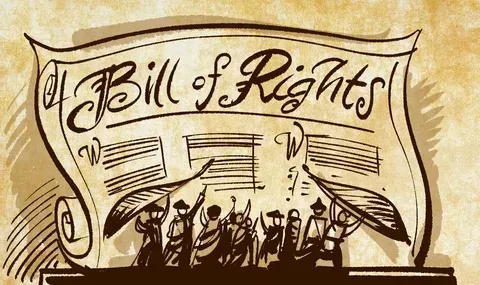Student Discipline Appeals Procedures: an Overview

Last month, we discussed an overview of the student disciplinary process, since the early stages such as investigations, and we learned about student disciplinary hearings. Thus, it’s logical to give you a few helpful pieces of information about the process to follow when the outcome of a student disciplinary case is not what you had hoped for. That is, the results were not --in whole or in part— adjudicated to your favor.
After the hearing and/or investigation has concluded, the Student Conduct Office, the Dean of Students, or the office in charge of enforcing the Student Code of Conduct will notify you of the outcome of your case in a decision letter within the time frame designated in the Student Code or Student Handbook. The decision letter tends to quote the Student Code of Conduct’s disposition under which the notification of the decision is required, it states the conclusions of the investigation or hearing, and the grounds for their decision. It should also have a statement of your right to appeal and a time frame to do so. Every university is different, and such deadlines could range from 48 hours to 30 days.
The first and most important thing to do is to find out the deadline to appeal. Once you are aware of the term, you should look for how “day” is defined in the Student Code or Student Handbook. Some universities define “day” as a natural day, some define it as a business day, whereas others define it as a school day. This is crucial because it’s possible that your interpretation of “day” differs from its definition leading you think you have more time to file your appeal letter, and you don’t want to risk the appeal to be denied for tardiness without ever being considered on its merits.
Once you are certain of the due date of the appeal letter, set realistic expectations and be honest with yourself. Are you able to go through the appeal process by yourself? Do you fully understand the Student Conduct Code or Student Handbook and know how to apply it to the adverse decision? Do you have time to prepare an appeal letter that you feel is compelling enough to overturn the decision? If you are unsure of any of these questions, you should consider contacting a Student Advisor or an attorney with experience in student disciplinary proceedings. Lately, these proceedings are turning more complex and many students, particularly undergraduate students-- do not have the knowledge or skills to successfully argue in their behalf. On the other hand, graduate students tend to have less time available due to the academic workload but want to defend their costly investment in their future. Lento Law Group and Lento Law Firm have a team of attorneys and support staff who dedicate exclusively to these types of cases. They have worked with hundreds of student cases just like yours and they have the expertise and knowledge to advise you and assist you with your appeal.
If you do believe you have the time, resources, and skills to go through with this appeal by yourself, it’s crucial that you thoroughly read the decision later and the grounds for their decision. Next, you must read the Student Code Handbook and understand the appeal process as set by the school. Commonly, the Student Handbook should list the grounds on which you should base your appeal. For example, a procedural error, bias from the person or persons in charge of your decision, or new evidence has emerged that couldn’t be discovered previously and it has a potential to change the outcome.
Next, you should ask yourself if what you need reversed could fit in one or more grounds stated in the Handbook for your appeal. What was the procedural error? Do you have evidence of bias from the adjudicator? What is the new evidence and why is it likely to change the school’s decision?
Once you have identified the grounds under which your appeal will be based, it’s time to draft the appeal letter. Choose your words carefully, and make sure you state the reasons for your disagreement with the decision and/or with the severity of the sanctions imposed.
If the evidence against you was compelling and/or the finding of facts is somewhat accurate, you should also mention regret for the behavior or circumstances that started the process. Make sure you mention any mitigating factors (such as physical or mental illnesses, living arraignment problems, financial difficulties, family problems at home, or relationship problems, etc.). It is advisable to mention your current and future contributions to the university: if you’re part of a sports team, or if your academic credentials are above average, or if you belong to a club or organization in the school. If applicable, you should argue that you have no previous incident with disciplinary action or investigation and that the current one is an unfortunate isolated incident. Make sure that you include a plan for future success, It also helps if you ask someone to read the appeal and give you feedback.
Once you are satisfied with your letter, it’s time to send it. Always make sure you send the letter to the correct official, which usually isn’t the person or panel who adjudicated the matter. It’s also good practice to send a copy of the appeal to the official or panel who decided the sanctions you’re asking to reconsider.
Oftentimes, the official in charge of the appeal has a term to decide about the appeal, but not all universities have one. In some instances, there could be an appeal hearing where you argue your case. In this instance, it’s helpful to assess again whether you are prepared to appear in a hearing before trained and experienced school officials all by yourself. I strongly advise that, in these stages, to not appear to the hearing by yourself, and to have a student advisor or attorney appear with you in the hearing. Further articles will discuss the appeal hearings in more detail.
Once the university has reached a decision, it will also be notified to you in a similar matter as the decision letter. Depending on the outcome and the university’s guidelines, that decision might be final or on the contrary, it’s possible to have the right to another appeal to a higher ranking official, usually a Provost.
As you can see, what at first might seem like a simple and straightforward procedure has many ramifications which could permanently impact your entire future.
The previous information is not intended to substitute legal advice, it is only for informative purposes. Every case is different, and an education attorney or student advisor is best educated, trained and experienced to provide you with professional advise that will adjust to your particular needs. If you would like to know more, please contact ______ (which number/ email should I include?)
- Student Handbook reference
- Cover the usual grounds for appeal
- Cover the process of appeal
- Tips to write an appeal.
- Hiring an attorney completely changes the dynamics
- Attorneys are expert interpreting and analyzing policies
- Go over to the sections they male reference in every communication: like “ according/ pursuant to sections XYZ
- Make sure the terms of the decision are defined somewhere in the handbook: pay close attention
- Make examples of academic misconduct terms
- When writing the appeal letter, the self-introspection required can be illuminating, especially for the student. This is a humbling opportunity to evaluate what went wrong, consider any mitigating factors (including physical or mental illnesses, roommate problems, financial stresses, family problems at home, etc). And it is an opportunity to describe what will be different in the next semester. (Getting adequate medical treatment, solved roommate issues, settled finances, or improved family issues, etc.)
- Appeal Hearing
- Sometimes the appeal hearing is about questions about the evidence, not the facts
- Usually done by other office or department of
- Outcomes
- Denial
- What a denial letter should have
- What’s the next steps
- Reversal:
- What the reversal should look like
- What can be done
More News & Resources











